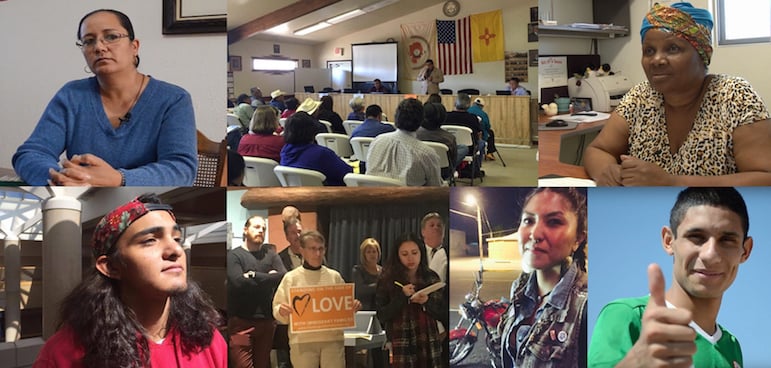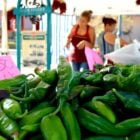Chaparral
Chaparral residents seek alternative to new El Paso Electric natural gas unit
|
Ida and David Garcia outside their home, less than a mile away from the Newman Power station, in Chaparral, New Mexico. Image: Claudia Silva. When Ida Garcia looks out the kitchen window during cool mornings, plumes billowing from a power plant less than a mile away in Texas obscure her view of the broad Chihuahuan desert skies and expansive vistas. During hot summer days the plumes disappear but she still worries.
“We see that plant everyday,” said Garcia of the Newman Power Station that sits between Chaparral, New Mexico and El Paso, Texas. “We see how all this smoke comes out from the stacks… We know that it’s not just steam.








